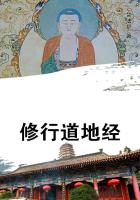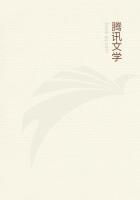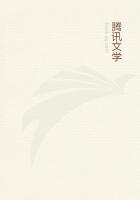The total loss of the English in killed, wounded, and drowned, amounted to 250. Nelson made no mention of his own wound in his official despatches; but in a private letter to Lord St. Vincent--the first which he wrote with his left hand--he shows himself to have been deeply affected by the failure of this enterprise. "I am become," he said, "a burthen to my friends, and useless to my country; but by my last letter you will perceive my anxiety for the promotion of my son-in-law, Josiah Nisbet. When I leave your command I become dead to the world--"I go hence, and am no more seen." If from poor Bowen's loss, you think it proper to oblige me, I rest confident you will do it. The boy is under obligations to me, but he repaid me by bringing me from the mole of Santa Cruz. I hope you will be able to give me a frigate to convey the remains of my carcass to England." "A left-handed admiral," he said in a subsequent letter, "will never again be considered as useful;therefore the sooner I get to a very humble cottage the better, and make room for a sounder man to serve the state." His first letter to Lady Nelson was written under the same opinion, but in a more cheerful strain. "It was the chance of war," said he, "and I have great reason to be thankful: and I know it will add much to your pleasure to find that Josiah, under God's providence, was principally instrumental in saving my life. I shall not be surprised if I am neglected and forgotten: probably I shall no longer be considered as useful; however, I shall feel rich if I continue to enjoy your affection. I beg neither you nor my father will think much of this mishap; my mind has long been made up to such an event."His son-in-law, according to his wish, was immediately promoted; and honours enough to heal his wounded spirit awaited him in England.
Letters were addressed to him by the first lord of the Admiralty, and by his steady friend the Duke of Clarence, to congratulate him on his return, covered as he was with glory. He assured the Duke, in his reply, that not a scrap of that ardour with which he had hitherto served his king had been shot away. The ******* of the cities of Bristol and London were transmitted to him; he was invested with the Order of the Bath, and received a pension of L1000 a-year. The memorial which, as a matter of form, he was called upon to present on this occasion, exhibited an extraordinary catalogue of services performed during the war. It stated that he had been in four actions with the fleets of the enemy, and in three actions with boats employed in cutting out of harbour, in destroying vessels, and in taking three towns. He had served on shore with the army four months, and commanded the batteries at the sieges of Basti and Calvi: he had assisted at the capture of seven sail of the line, six frigates, four corvettes, and eleven privateers: taken and destroyed near fifty sail of merchant vessels, and actually been engaged against the enemy upwards of a hundred and twenty times, in which service he had lost his right eye and right arm, and been severely wounded and bruised in his body.
His sufferings from the lost limb were long and painful. A nerve had been taken up in one of the ligatures at the time of the operation; and the ligature, according to the practice of the French surgeons, was of silk instead of waxed thread; this produced a constant irritation and discharge; and the ends of the ligature being pulled every day, in hopes of bringing it away, occasioned fresh agony. He had scarcely any intermission of pain, day or night, for three months after his return to England. Lady Nelson, at his earnest request, attended the dressing of his arm, till she had acquired sufficient resolution and skill to dress it herself. One night, during this state of suffering, after a day of constant pain, Nelson retired early to bed, in hope of enloymg some respite by means of laudanum. He was at that time lodging in Bond Street, and the family were soon disturbed by a mob knocking loudly and violently at the door. The news of Duncan's victory had been made public, and the house was not illuminated. But when the mob were told that Admiral Nelson lay there in bed, badly wounded, the foremost of them made answer: "You shall hear no more from us to-night:" and in fact, the feeling of respect and sympathy was communicated from one to another with such effect that, under the confusion of such a night, the house was not molested again.
About the end of November, after a night of sound sleep, he found the arm nearly free from pain. The surgeon was immediately sent for to examine it; and the ligature came away with the slightest touch. From that time it began to heal. As soon as he thought his health established, he sent the following form of thanksgiving to the minister of St. George's, Hanover Square:--"An officer desires to return thanks to Almighty God for his perfect recovery from a severe wound, and also for the many mercies bestowed on him."Not having been in England till now, since he lost his eye, he went to receive a year's pay as smart money; but could not obtain payment, because he had neglected to bring a certificate from a surgeon that the sight was actually destroyed. A little irritated that this form should be insisted upon, because, though the fact was not apparent, he thought it was sufficiently notorious, he procured a certificate at the same time for the loss of his arm; saying, they might just as well doubt one as the other. This put him in good humour with himself, and with the clerk who had offended him. On his return to the office, the clerk, finding it was only the annual pay of a captain, observed, he thought it had been more. "Oh!" replied Nelson,"this is only for an eye. In a few days I shall come for an arm; and in a little time longer, God knows, most probably for a leg." Accordingly he soon afterwards went, and with perfect good humour exhibited the certificate of the loss of his arm.














